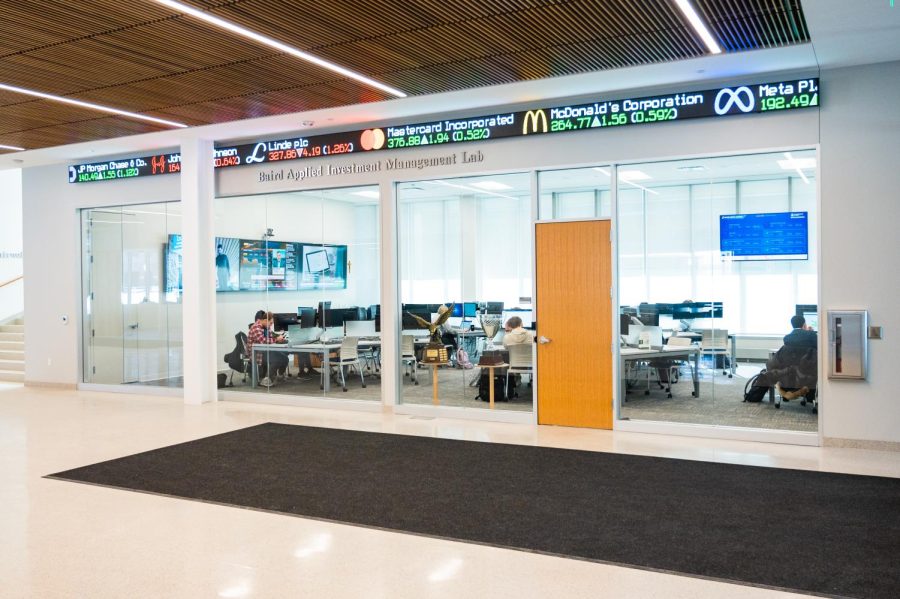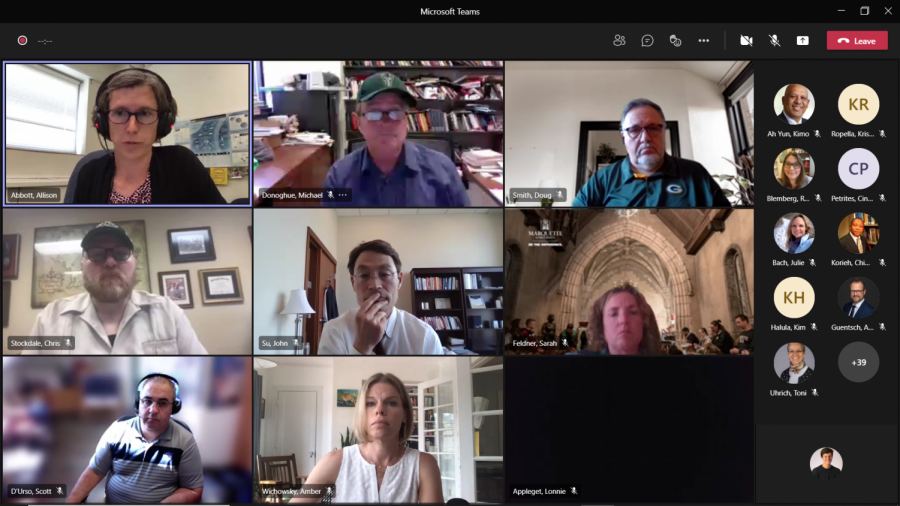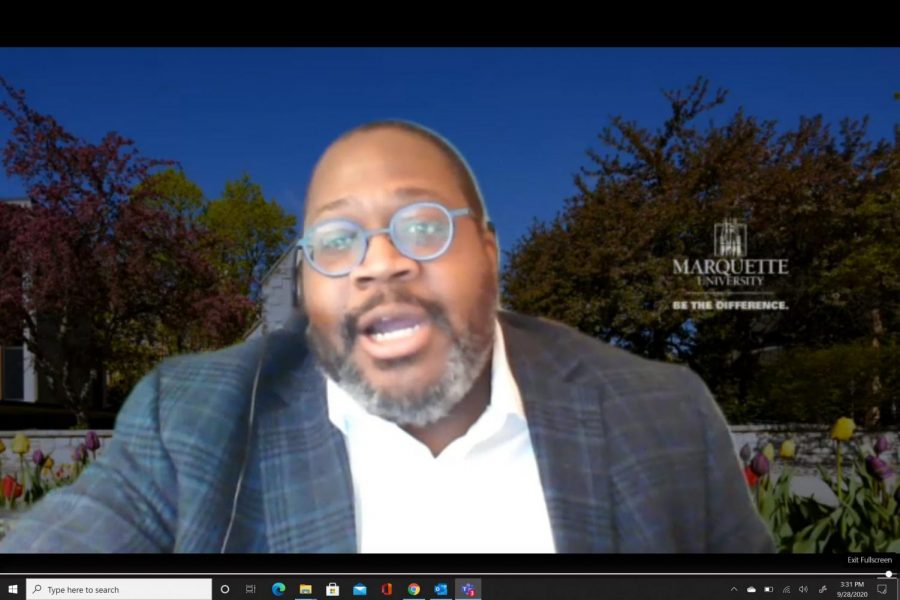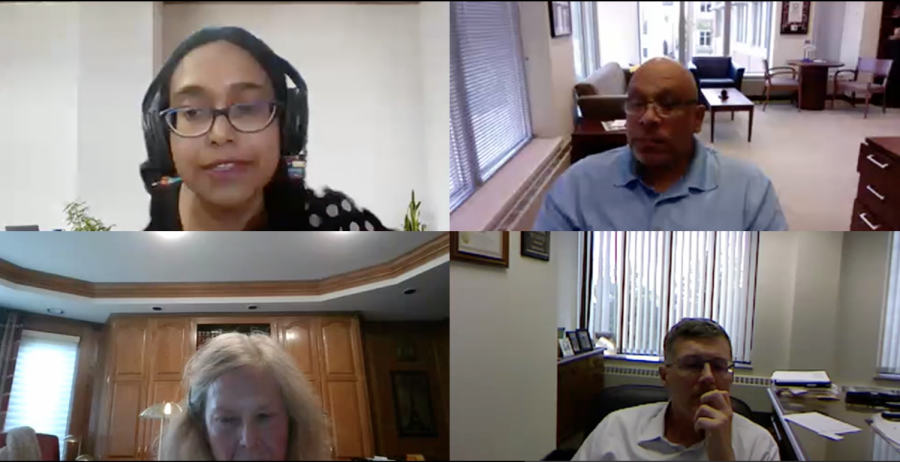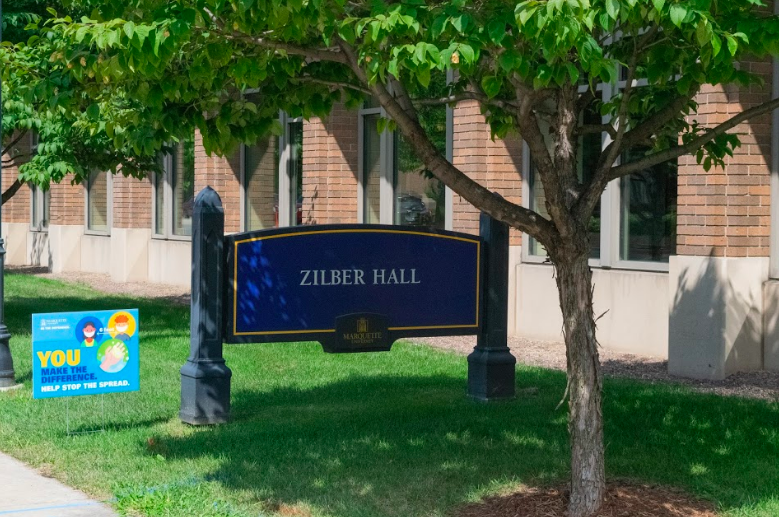
The university held a virtual town hall meeting for the campus community Nov. 19 which addressed updates surrounding economics, academics and COVID-19 planning for the spring semester.
University President Michael Lovell offered opening remarks, addressing the challenges the Marquette community is facing as the spring semester draws near.
“We must deal with the reality that we are facing,” Lovell said. “Like the original Jesuits, but with one foot raised, we need to adapt for a successful future.”
Although these adaptations may be difficult, Lovell posed a question that will aid in driving Marquette towards a better future.
“The fundamental question we all need to answer is: how do we best uphold our Catholic, Jesuit identity and values in the face of our present challenges?”
Lovell also addressed the non-academic work streams.
“There is significant work going on to achieve substantial budget reductions. This work includes restructuring, making reductions, and building efficiencies in areas such as athletics, advancement, the president’s office, facilities, and all areas that ultimately report to Joel (Pogodzinski) and myself,” Lovell said.
An update on the university’s academic vision was also discussed at the meeting.
Provost Kimo Ah Yun discussed how the Academic Senate and Faculty Council are collaborating in order to gauge more voices in the decision-making process.
Through this process, there has been an implementation of “work groups” that will address both short-term budget reductions as well as long-term planning processes.
Ah Yun assured the community that input is not solely coming from the Academic Senate and Faculty Council.
“We are hearing from all sectors of the university on ideas about what we should do next,” Ah Yun said.
Ah Yun ended with an update regarding the universities tenure buyout program for full-time tenured faculty. This program led to the resignation of 31 faculty members.
Senior Vice President and Chief Operating officer, Joel Pogodzinski, then discussed updates regarding the university’s financial state.
“We are now thinking that the (2021 fiscal year) financial gap will be $40 million or more,” Pogodzinski said.
Pogodzinkski discussed how giving students the opportunity to attend Marquette fully online, mixed with the lack of revenue made from this upcoming basketball season, was a large factor in this deficit.
In reaffirming the upcoming layoffs that will begin in just a few weeks, Pogodzinski assures the Marquette community that these cuts will alleviate current economic shortcomings.
“As we plan going forward for FY ‘22, there will be faculty and staff reductions during this year. We anticipate those happening this year ahead of FY ‘22 and there will be an economic impact that benefits FY ‘21 to help mitigate some of the increase exposure that we have,” Pogodzinski said.
Pogodzinski also announces that there will be no tuition increase for the upcoming year of 2021.
The Board of Trustees, who are responsible for reviewing broad university budget assumptions, will be meeting with the university in December to approve a new budget for the next fiscal year.
John Su, vice provost for academic affairs, then discussed plans for spring semester.
Seen through student surveys, Su addresses the demand for more collaboration amid classes and mental health initiatives next semester.
“We will continue to help our faculty with courses designed for spring to ensure we are having collaborative learning pedagogical experiences,” Su said. “We will be collaborating with student affairs, mission administry, human resources and others to enhance our mental health and well-being programming next semester.”
Su also discusses the distribution among in-person, hybrid and online classes next semester. This will remain roughly the same with 33% being in-person, 21% hybrid and 46% online.
Keli Wolmer, executive director of the Marquette University Medical Clinic, wrapped up the meeting in discussing COVID-19 updates.
Wolmer clarifies a commonly asked question regarding the number of new cases on campus per-day, seen through Marquettes coronavirus dashboard.
“These cases include not only those who are tested on campus but also those who are reported through self-disclosure,” Wolmer said. “We are currently at a 23% positivity rate on campus.”
This story was written by Claire Driscol. She can be reached at claire.driscol@marquette.edu.






